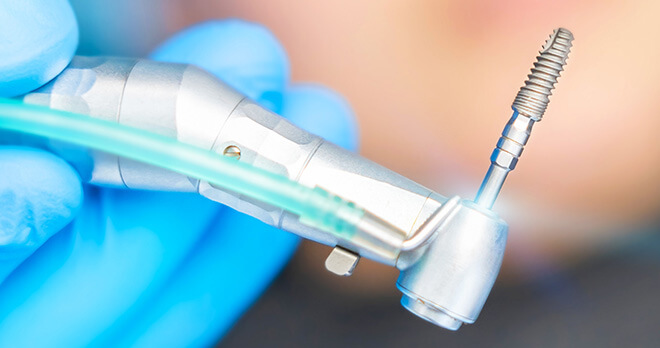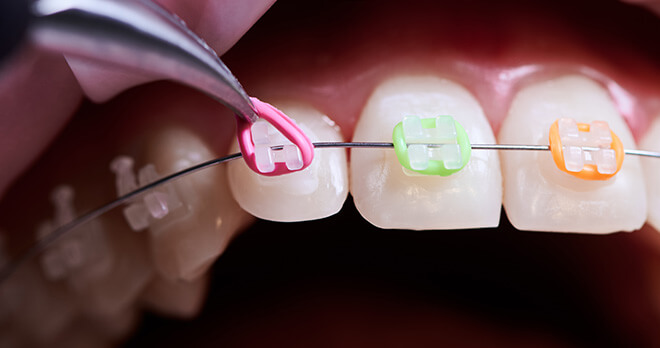Are we moving towards a culture of defensive dentistry in the UK
An article has been published in The Guardian recently where a woman describes how her dentist delayed and failed to treat her original symptom of pain in her molar tooth.
She alleges that rather than use logic, common sense and physically look at her tooth, her dentist referred her to multiple different specialisms for numerous tests and investigations. She requested a root canal treatment, or even extraction of the tooth, to prevent the pain, only to be refused either treatment in preference of more investigations. As a result of this failure to treat and delay, her pain worsened and spread to neighbouring teeth, her symptoms worsened to a rotting taste in her mouth and two years later she has been left with constant pain, no quality of life and any treatment she has received has been in vain because it is too late.
One of the dentists responsible for her treatment said that had he been in his Athens surgery, he would have carried out a root canal on the original tooth. But here, in the UK, he had been concerned he could be held to account by General Dental Council (GDC) regulations because the x-ray image had not been ‘definitive’. At the time, the woman said that this dentist had not made her aware of this reasoning.
An interesting part of this article is a point about “defensive dentistry”: the article references how a dentist wrote to the British Dental Journal (BDJ) in November 2020 to give his opinion that dentists are working defensively in fear of being sued by dental negligence lawyers and reprimanded by the GDC. He considers that it will get to the point in the future that all dental care that is slightly varied from the norm will be referred on to secondary care by dentists so that they avoid liability for any wrongdoing with that care. As such, he is of the view that a fundamental change in the system is necessary to prevent this from happening.
In our experience with dental negligence claims, it is very rare to come across a dentist who has adopted this approach and effectively passed the patient on to someone else before even trying to treat the patient themself. Of course, there will be instances where a patient is presenting with symptoms that are incredibly complicated and referrals are vital to investigate and rule out diagnoses. However, even in these complicated scenarios, it is usual for a dentist to try their best to treat the patient first and rule out whatever they can within their professional remit, and common sense, before referring the patient on to another specialism.
A dentist has a duty of care to treat their patient in line with a professional Code of Conduct and the GDC regulations that they agreed to adhere to when they qualified as a practitioner. Indeed, every profession has a set of rules and regulations and every professional has a responsibility to uphold these, in whatever career they choose, otherwise they will be held accountable.
Where we can see that a dentist has acted in the same way in which we would expect a reasonable body of dental practitioners to act, in the same field/specialism, then they will be deemed to have acted in line with their duty of care and they will not be found negligent. If anything, where a dentist fails to treat a patient and either refuses or delays such treatment, where another dentist would have at least tried to help, this itself is a breach of duty of care and could give rise to a successful negligence claim. Therefore, a defensive strategy to avoid being sued could ironically have the adverse effect.
Regardless of regulations and the law, surely morally the right thing to do is to put the patient first and treat them if it is possible and urgent, rather than cause them unnecessary and prolonged pain and suffering. There will always be arguments surrounding underfunding, lack of resources and staffing but solutions can be found and will be considered in line with what a reasonable body of practitioners would have been able to do, in the same set of circumstances, at the given time. The law is fair and there should be no excuse to prevent a patient from accessing basic dental treatment and to stop a dentist exercising the basic principles of dentistry.
If you have ever suffered from a dentist’s failure or delay in treatment, please feel free to contact us today to see if you are eligible to bring a claim in dental negligence.
Got a question?
You can call the team on 0800 923 2080 or message them to understand more about you potential compensation claim for dental negligence. We will get back to you at a time that is convenient to you.
Common claim types
Insights and opinions
View more articles related to Cosmetic dentistry, Crowns and bridges, Dental implants, Dental nerve damage, Extractions, Gum disease, Information, Mouth cancer, Orthodontics, Root canal treatment, Tooth decay and Wisdom teeth










